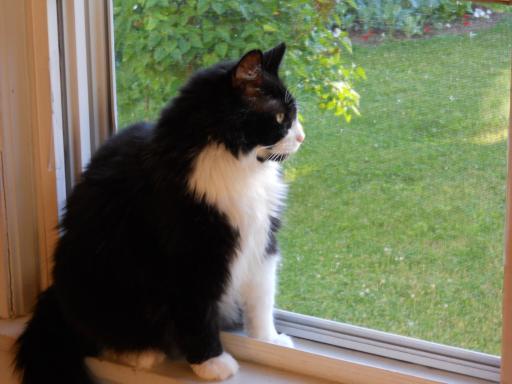
Good Nutrition for a Healthy Cat
Many elements can have an impact on a cat's health; its age and genetics, for example, play a large part. Sadly, there is little we can do to improve these elements, but where we can make sure we get things right is a cat's nutrition.
The Makeup of a Cat
Cats have been around in one shape or form for around 12 million years, although the domestic cat that we know today is relatively recent, evolving from a totally meat-eating animal to one that can tolerate other food groups too.
As a domestic pet, we have been feeding animals canned food for around 70 years. Most food groups are combined with meat in modern cat foods, often with extra additions for good health such as vitamins and antioxidants. These foods can be either canned and wet or natural.
Dry foods come in many varieties. Webbox's dried cat food for example, is ideal if you're leaving your home for a longer period of time - while natural or wet pet foods are more beneficial for your cat's diet, including a vaster range of nutrients, but cannot be left out for too long as they become dry and inedible.
Supplementing the Diet
Dried cat food seems to be the food of choice for most cat owners nowadays, but it's important to keep variation in your cat's diet to avoid health issues that can arise from eating a restricted diet. As well as the oils and antioxidants that are added to dried cat food to avoid illness, it's recommended that a cat also eats daily wet, canned food too.
Health Issues Caused by Diet
Cats need more water as they age, which is why it's a good idea to give wet food as well as dried food daily. Wet food, as the name suggests contains more water, which can help prevent kidney disease that becomes more common as a cat ages. It is also particularly good for cats with teeth problems, or very young cats who will struggle with the bulk of dried food.
This doesn't mean that you should omit the dried food entirely in favour of wet food, though. Dried food is often filled with essential nutrients that are harder to get in wet food and often come with additions such as brown rice for slow energy release. Again, variation is key, so choosing a combination of the two is best. Katie from civlizedhealth.com agreed "Cats are like humans, if they don't get a good nutritional diet it can massively affect their health and wellbeing."
Treats
It's nice to have a little treat every now and then, but if your cat is obese its important to limit these as much as possible to help reduce their podge. Ideally, cats should be fed no more than 10% of their calories as treats. If you do decide to give your cat a treat for good behaviour then make sure that they are natural items such as meat, fish or eggs, and only in a small amount so you don't make your furry friend fat. Never give your cat foods such as raisins, grapes, salt, tea or onions as these are toxic to cats. Milk is also a big no-no as it can upset a cat's delicate stomach.
